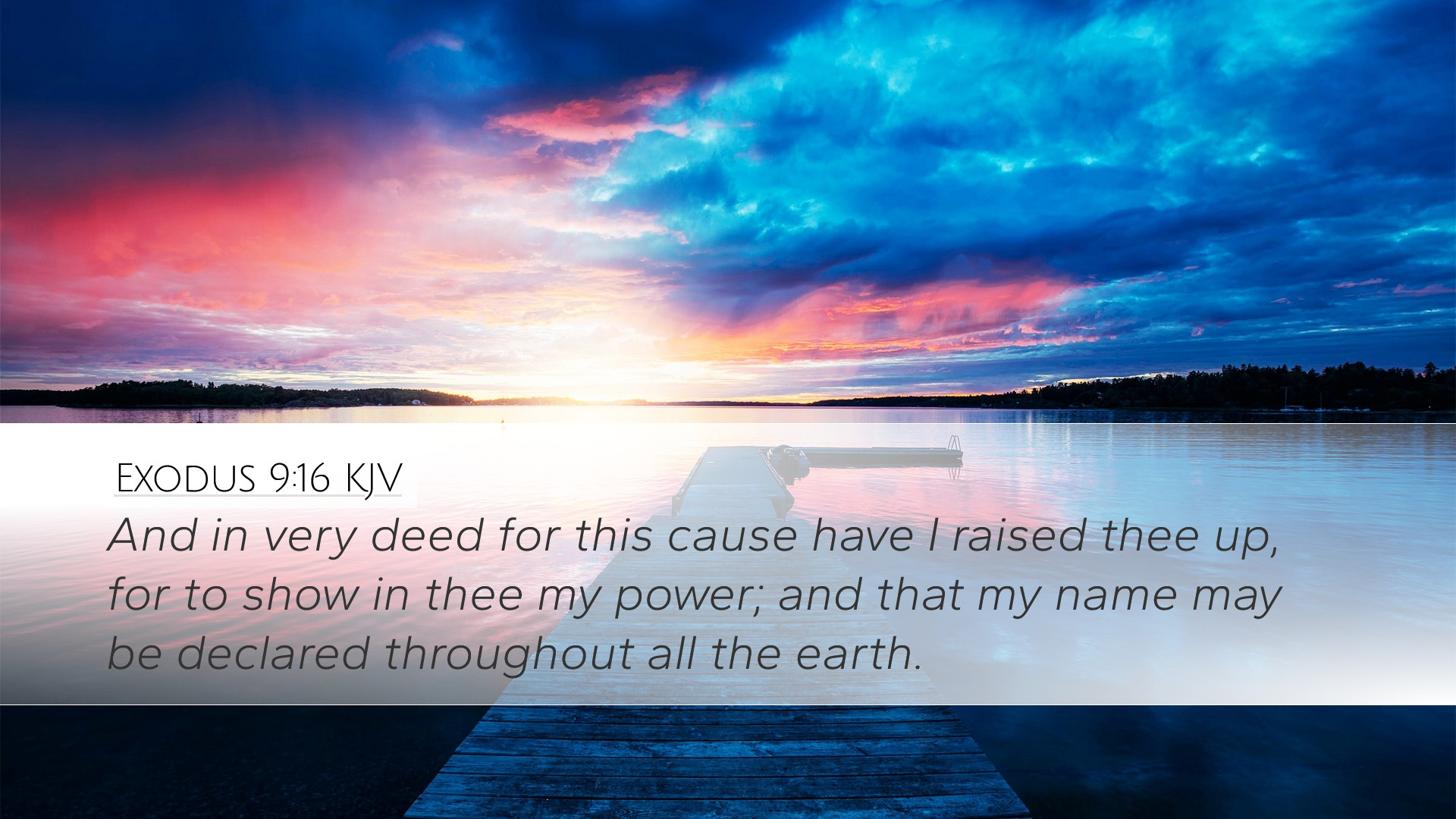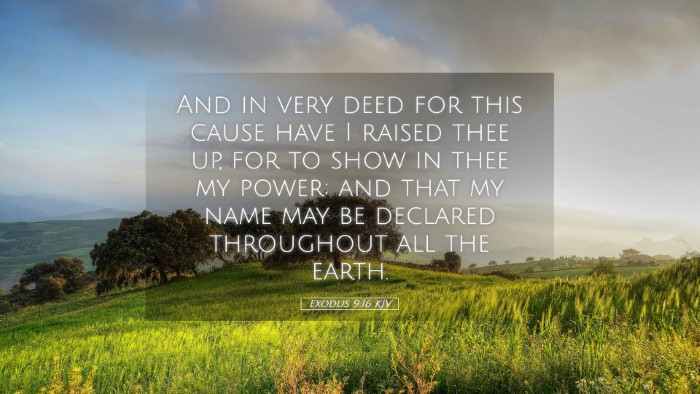Exodus 9:16 Commentary
Verse Text: "But indeed for this purpose I have raised you up, that I may show My power in you, and that My name may be declared in all the earth."
Introduction
This verse captures a pivotal moment during the plagues of Egypt, revealing God's sovereignty and the purpose behind His actions. It is crucial for understanding the larger narrative of Exodus as well as the character of God. The commentaries by Matthew Henry, Adam Clarke, and Albert Barnes provide insightful perspectives on the implications of this verse for both the ancient audience and contemporary readers.
Theological Insights
This verse emphasises God's sovereignty in history and His ability to use individuals for His divine purposes. Several themes emerge that are significant for pastors and theologians:
- Divine Sovereignty: The assertion that God raised Pharaoh for a specific purpose illustrates God's control over human events.
- Purpose in Suffering: God's use of Pharaoh's hard heart serves the greater purpose of demonstrating His power, which can be a profound source of comfort in human adversity.
- Glory of God: The repeated declarations of God's name and power remind believers of the call to glorify God in all circumstances.
Commentary Summaries
Matthew Henry
Matthew Henry noted that Pharaoh’s hardening was both a judgment and a means of revealing God’s majesty. He emphasizes that God’s raising up of Pharaoh was not arbitrary but served a divine purpose. Henry reflects on the nature of God’s power and how it is often demonstrated through weakness, as shown in Pharaoh's resistance. He suggests that this serves as a warning against pride and self-sufficiency in human leaders and encourages believers to align with God's sovereignty.
Albert Barnes
Albert Barnes provides an analytical approach to this verse, highlighting that God's intention for raising Pharaoh was to display His mighty power and to ensure that His name would be renowned throughout the earth. Barnes suggests that God’s means of revelation often include both miraculous acts and the obedience of His people. He emphasizes that the ultimate purpose is for God's glory and encourages the faithful to remember their role in this divine narrative.
Adam Clarke
Adam Clarke elaborates on the theological implications, focusing on the idea of God's sovereignty. He observes that God’s raising up of Pharaoh is a demonstration of His absolute authority over creation. Clarke posits that understanding this verse helps one grasp the principles of divine election and judgment. He also discusses the significance of Pharaoh's example for subsequent generations, highlighting that awareness of God’s power leads to a deeper respect for His holiness.
Practical Applications
The insights drawn from this verse can lead to several applications for contemporary believers:
- Trust in God's Plan: Believers are encouraged to trust that God has a purpose, even in challenging circumstances.
- Awareness of Our Influence: Understanding that we may have roles in God's plan inspires humility and responsibility.
- Proclaiming His Name: The call to declare God's greatness should motivate the church's evangelistic efforts.
Conclusion
Exodus 9:16 serves as a powerful testimony to God's sovereignty, purpose, and glory. By examining this verse through the lenses of prominent biblical commentators, we gain deeper insights into the nature of God’s actions and His interaction with humanity. The legacy of Pharaoh and God's declaration of His power transcend time, prompting believers to acknowledge divine sovereignty in both personal and communal contexts.


